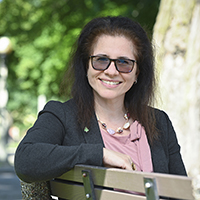Over the past decade, urban forestry has shifted from focusing on methods and frameworks to addressing broader social and environmental issues, especially green equity. This growing movement acknowledges that urban forests are not just about trees—they also play a vital role in combating climate change, improving air and water quality, and providing habitat for wildlife. Equally important, urban forests offer communities access to green spaces that enhance the well-being of all residents, regardless of socio-economic background.
Addressing the disparities in access to quality green spaces is crucial for creating more equitable and inclusive cities. Communities with fewer green spaces often face higher risks of poor air quality, heat stress, and reduced mental and physical health. Beyond environmental benefits, ensuring that all neighbourhoods have access to nature supports health, safety, and the feeling of belonging. This shift in thinking is transforming how urban forestry is planned, implemented, and taught.
Tree Canada’s Contribution
At Tree Canada, this shift has been reflected in recent projects that focus on both ecological and social equity. From disaster relief to planting trees in underserved communities, these initiatives increasingly prioritize areas that need the most support.
This past June, Tree Canada’s E-Lecture series, created in collaboration with the Canadian Institute of Forestry, highlighted the importance of place-based learning and community engagement. Featuring examples from across Canada, the series showcases innovative partnerships and educational approaches aimed at increasing canopy cover in ways that are fair and sustainable.
Equity at the 2024 Canadian Urban Forest Conference
This October 15-18 in Winnipeg, the Canadian Urban Forest Conference (CUFC) program will explore the theme of equity in urban forestry. The program brings together thought leaders, practitioners, and researchers to discuss the latest issues, trends, and best practices. Keynote speakers and panels will delve into how urban forestry initiatives can drive social and environmental justice, highlighting Indigenous knowledge, community engagement, and equitable resource distribution.
Conference participants will have the chance to learn about cutting-edge research, technologies, and actionable strategies from Canadian communities. They’ll also gain insights into securing funding and forming meaningful partnerships. Above all, the CUFC will provide attendees with opportunities to connect with peers across various sectors to advance the goal of building more inclusive urban environments.
Equity in urban forestry is not a one-size-fits-all concept. It touches on many aspects—from tree species selection and wildlife habitat protection to social issues like gender and labour concerns. Each of us brings our own experiences, shaped by ethnicity, geography, and culture, to the discussion. Moving beyond surface-level understanding of equity requires ongoing education, adaptability, and a commitment to genuine engagement with diverse communities.
To gain further insights into CUFC and the importance of having conversations on equity in urban forestry, watch our interview with Dr. Adrina C. Bardekjian, Tree Canada’s Director of Research and Engagement & CUFN Chair.
Insights from Dr. Adrina C. Bardekjian
Back to all articles
